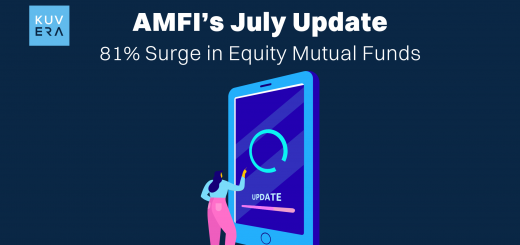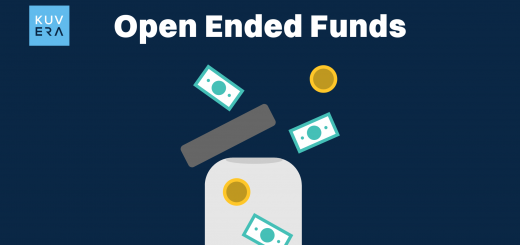The debate on investing has significantly moved from “Should I Invest?”, to “How Should I Invest?”. Digitalisation has made investments easier, offering unprecedented convenience and access to mutual funds India. Convenience through mutual funds investing with SIP (Systematic Investment Plan) has become immensely popular and is now being synonymously used with mutual funds.
However, this convenience comes with a responsibility. Safeguarding your financial information and investments from cyber threats has now become an integral part of your investing. To protect your hard-earned money, you need to maintain strong digital hygiene. Digital hygiene is also important for ensuring a secure online investing experience.
Let us discuss the essential tips and best practices to maintain digital hygiene while navigating the world of online mutual fund investing.
1. Strong Passwords: Your First Line of Defense
Complexity is Key: Whether or not you are a regular investor, you need to create strong and unique passwords for each of your investment accounts. For this, you can use a combination of uppercase and lowercase letters, numbers, and symbols. Furthermore, you should avoid using easily guessable information like your DOB (Date Of Birth) or pet’s name.
Example: Instead of “password123,” you can use a more complex password like “P@$$wOrd!23#.”
Password Managers: Using a reputable password manager to generate and store strong passwords securely could help you maintain them.
2. Two-Factor Authentication (2FA): Double the Protection
Adding an Extra Layer: Investors can enable two-Factor Authentication (2FA) whenever possible. Usually, it can be added in mutual funds and demat accounts. This adds an extra layer of security by requiring a second form of verification, such as a one-time password (OTP) sent to your phone or email, in addition to your password.
Example: When logging into your online investment account, you will enter your password and then receive an OTP on your phone to confirm your identity.
3. Secure Wi-Fi Networks: Beware of Public Wi-Fi
Avoid Public Wi-Fi: Public Wi-Fi networks are vulnerable to hackers and are often unsecured. Thus, you should avoid accessing your investment accounts on these internet networks. Investors can use a trusted and secure Wi-Fi network, preferably your home or mobile network, when accessing sensitive financial information.
Example: Checking your mutual fund returns or making transactions while connected to the Wi-Fi at a coffee shop or airport could be risky. Therefore, it must be avoided to maintain digital hygiene.
4. Beware of Phishing Scams: Don’t Take the Bait
Recognise Phishing Attempts: By being vigilant about phishing scams, you can maintain digital hygiene. Fraudsters attempt to trick you into revealing your login credentials or personal information through fake emails, messages, or websites that mimic legitimate institutions.
Example: Investors can be wary of emails or messages claiming to be from their bank or investment platform asking to verify account details or click on suspicious links. One must always double-check the sender’s address and website URL before clicking on any links or providing information.
5. Regular Software Updates: Stay Up-to-Date
Update Your Devices and Apps: Keeping your operating system, browser, and investment apps updated to the latest versions is crucial. Software updates often include security patches that address vulnerabilities and protect against malware.
Example: One can enable automatic updates on your devices and regularly check for updates for your investment apps.
6. Secure Your Devices: Lock It Down
Device Security: You can implement security measures on your devices, such as screen locks, biometric authentication (fingerprint or facial recognition), and encryption, to prevent unauthorised access.
Example: It is essential to set a strong password or PIN on your phone and enable fingerprint or facial recognition for added security.
7. Monitor Your Accounts Regularly: Stay Vigilant
Regular Checkups: Regularly monitoring your investment accounts for any suspicious activity is an essential component of digital hygiene. You can check your transaction history, account statements, and mutual fund returns for any discrepancies or unauthorised transactions.
Example: You can review your account statements at least once a month and report any suspicious activity to your investment platform immediately.
8. Reliable Sources: Verify Information
Trustworthy Sources: Obtaining investment information and advice from reliable sources, such as reputable financial websites, your investment advisor, or official publications from regulatory bodies like SEBI (Securities and Exchange Board of India) is better than depending on peers, relatives, friends, relatives etc.
Example: You need to be cautious about investment tips or recommendations from unverified sources or social media groups.
9. Beware of Social Engineering: Don’t Overshare
Protect Personal Information: It’s important to be mindful of sharing personal information online, especially on social media. Investors should avoid disclosing details like your investment portfolio, financial goals, or contact information that could be exploited by fraudsters.
Create wealth with SIP. Start now.
10. Use Secure Payment Gateways: Safeguard Your Transactions
Trusted Payment Methods: It is important to use secure payment gateways and trusted payment methods when making online investments or transactions. You can look for secure website indicators like “https” and a padlock icon in the address bar.
11. Logout After Use: Don’t Stay Logged In
Logout Routine: As a practice, it is important to log out of your investment accounts after each session, especially when using public or shared devices. This can prevent unauthorised access to your account.
12. Beware of Free Wi-Fi: Exercise Caution
Public Wi-Fi Risks: You need to exercise caution when using free public Wi-Fi. It is better to not access sensitive financial information or make transactions on these networks, as they may not be secure.
13. Strong Antivirus and Anti-Malware Software: Essential Protection
Install Security Software: Installing reputable antivirus and anti-malware software on your devices to protect against viruses, malware, and other cyber threats is important. This could help you protect your financial information from getting compromised.
14. Regular Data Backups: Protect Your Information
Backup Your Data: It is important to regularly back-up your important financial data, such as account statements and investment records, to prevent data loss in case of device failure or cyberattacks.
15. Educate Yourself: Stay Informed
Stay Updated: You need to stay informed about the latest cybersecurity threats and best practices. Following online security blogs, reading articles, and attending webinars to enhance your knowledge and stay ahead of potential risks can help.
Wrapping Up
Maintaining strong digital hygiene is essential for protecting your investments and financial information in the online world. By following these tips and best practices, you can create a secure online investing environment and enjoy the convenience and benefits of digital platforms while safeguarding your financial future. Vigilance and awareness are your greatest allies in the fight against cyber threats while investing in mutual funds India.
Interested in how we think about the markets?
Read more: Zen And The Art Of Investing
Watch here: Is UPI Killing the Toffee Business?












